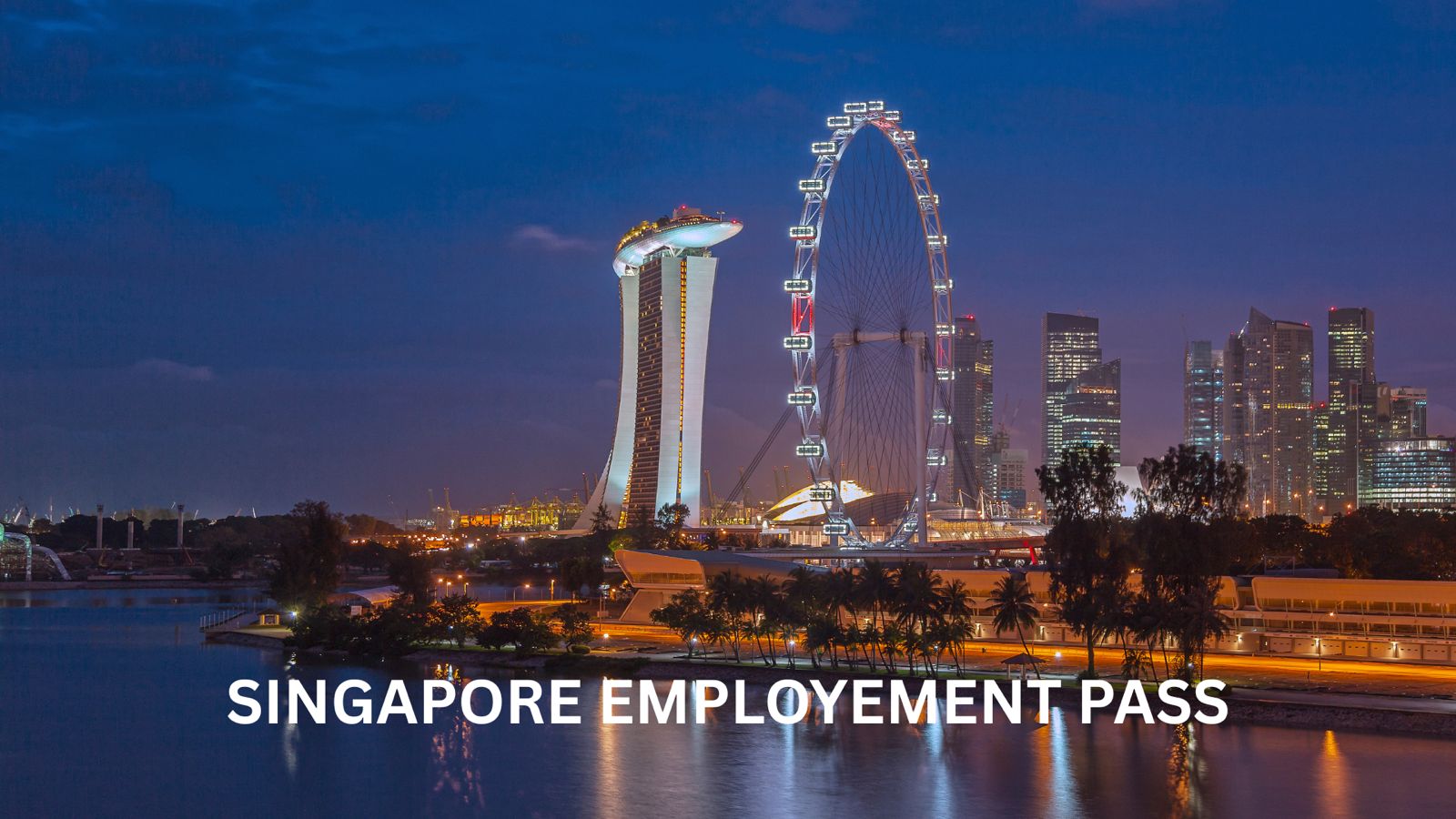Table of Contents
Introduction
Singapore is one of the most attractive destinations for international professionals. Some come for the career jump, others for the global exposure that Singapore provides.
For this, the Employment Pass serves as the primary gateway for highly skilled foreign professionals, managers, and executives to work and reside in the Lion City legally. If you’re thinking of working in Singapore, this pass is the one document you absolutely need to understand before packing your bags.
Singapore continues to develop its immigration policies to bring in high-level talent from other countries. Their other concern is to prioritise local workforce development. Due to this, it is crucial to have knowledge of the changing Employment Pass system for future candidates and employers.
So if you’re considering establishing a career in Singapore, this blog will inform you of everything you need to know regarding the Employment Pass.
What is the Employment Pass?
The Employment Pass is Singapore’s work visa for foreign professionals in managerial, executive, or highly specialised roles. It allows you to live and work in the country for one to two years at first, with renewals stretching up to three.
It often comes with benefits like sponsoring your family to join you, which makes it even more attractive for foreign workers.
It’s different from the S Pass or Work Permit, which are targeted at mid-skilled or lower-wage workers. The Employment Pass sits at the higher end of the scale and targets highly skilled workers.
What Changed in 2025
The rules around the Employment Pass changed in 2025 and brought in some of the most noticeable shifts in recent years. The minimum salary requirements were raised:
- General sectors now require at least S$5,600 a month.
- Financial services, often paying more anyway, need at least S$6,200.
- For older and more experienced applicants, the qualifying salary rises sharply, reaching about S$10,700 in general sectors and S$11,800 in finance for those in their mid-40s.
| Sector | New Minimum Salary (from Jan 2025) | Older Applicants (45+) |
| General | S$5,600 | Up to S$10,700 |
| Financial Services | S$6,200 | Up to S$11,800 |
Also Read: Employment Pass Requirements, Eligibility and Application Process
The Two-Stage Filter: Salary and COMPASS
Imagine the Employment Pass application as going through two doors. The first is just a salary check to see if you pass the minimum requirement. The second is the COMPASS framework, which is slightly more complex:
Stage 1: Salary Check
If your salary fails to reach the minimum level, the application does not proceed. That’s the threshold. But if you pass it, you proceed to the COMPASS Test.
Stage 2: COMPASS (Complementarity Assessment Framework)
COMPASS is Singapore’s new points-based framework for the Employment Pass. It looks at both you and your employer to decide if you genuinely add value to the local workforce.
This is how the scoring system works:
Foundational criteria (up to 20 points each):
- How does your salary compare with people doing the same job locally
- Your academic qualifications
- The diversity you bring to the company’s workforce
- Your employer’s record of supporting local employment
Bonus criteria (up to 20 points each):
- Skills Bonus: awarded if you’re in a sector where talent is in short supply
- Strategic Economic Priorities Bonus: given if your employer is aligned with Singapore’s long-term national goals
Application Process and Documentation
Documents you’ll need:
- Passport particulars page
- Verified educational certificates (compulsory since 2023)
- Employment contract and job description
- Company business profile (BizFile)
- Written consent
Timeline:
- Preparation: 3–5 working days
- MOM processing: 3–8 weeks (average 2–3)
- Pass issuance: 1–2 weeks
Fees:
- Application: S$105
- Issuance: S$225
- Multiple Journey Visa: S$30
Family Benefits
Dependant Pass scheme:
If you earn at least S$6,000 a month, you can sponsor your legally married spouse and unmarried children under 21 through the Dependant Pass scheme.
Long Term Visit Pass:
Others, like common-law spouses, parents, and older handicapped children, may qualify under the Long Term Visit Pass. For many professionals, this makes the difference between taking a job in Singapore and not.
Renewal of your Employment Pass
To keep your Employment Pass, you must renew it as required. For this, you’ll have to:
- Stay above the salary threshold (new rules apply in 2026)
- Pass COMPASS (yes, even for renewals now)
- Stick with the sponsoring employer
- Prove ongoing business need
Timeline:
- Apply up to 6 months before expiry
- Takes about 10 working days
Also Read: Top Study Abroad Programs for 2025: Best Destinations & Courses
Conclusion
The Employment Pass will likely keep evolving. The minimum salary required may rise, and certain industries may rise in importance. But the consistent thing is Singapore’s approach to attract talent that adds value without sidelining locals.
So yes, the process can feel demanding. But for those who prepare smartly, the Employment Pass becomes a real doorway into one of the most competitive and forward-looking economies in the world.








